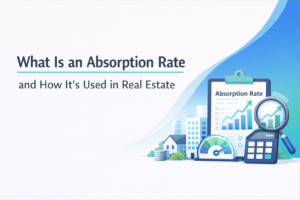
Every property owner knows that collecting rent is one of the crucial responsibilities of being a landlord. Over the years, we have come across various lease agreements that outline expectations, from household amenities to the types of outdoor furniture allowed.
However, we have observed that the rent payment process, essential for a landlord’s operations, sometimes lacks detailed attention in these agreements.
Typically, the terms are brief, mainly focusing on due dates and potential penalties. This process requires clear communication to ensure effective rent collection.
In this article, we will explain which way is better for you as a landlord. Physical Vs. Online? Let’s find out.
Physical Rent Collection
Physical rent collection is a reliable method for property owners. Tenants can deliver their rent payments to a designated location, such as the property manager’s office.
Physical rent collection has the advantage of being simple and straightforward. It’s a great option for tenants who prefer tangible transactions and provides an opportunity for face-to-face interaction. This personal touch can help build community and trust between landlords and tenants.
Additionally, it ensures immediate confirmation of payment receipt, reducing the chances of payment disputes.
However, physical rent collection may pose challenges in today’s digital age. With the rise of online transactions, some tenants may find this method inconvenient. This strategy is well-suited for smaller properties with a closely-knit community where personal connections matter.
To improve their rent collection strategy, property owners can simplify the process by implementing secure Dropbox systems and providing clear instructions for tenants.
While physical rent collection may work well for some demographics, alternative methods such as online payments for a more inclusive approach that caters to a broader range of tenants are worth considering.
Online Rent Collection
Now that we’ve covered the physical rent payment, let’s shift to what’s really important – the online option.
Online rent collection has revolutionized the property rental business by providing landlords an efficient and convenient way to collect rent. It involves using property management software or online platforms to facilitate rent payments electronically.
The key advantage of online rent collection is its accessibility. Tenants can pay their rent from the comfort of their homes, reducing the hassles associated with physical transactions. This method mainly benefits larger properties with diverse tenant profiles and busy schedules.

One prominent example is using dedicated platforms like PayPal and Venmo or property management software such as NetSuite, Propertese, Buildium or AppFolio. These tools streamline payments and offer features like automated reminders and receipts, reducing the administrative burden on property owners.
While online rent collection is a modern and efficient strategy, property owners should ensure secure payment gateways to protect sensitive information. It’s crucial to educate tenants about the process and provide support for those less familiar with digital transactions.
Best Rent Collection Apps for Landlords
Rentec Direct provides a comprehensive property management solution, making it ideal for those handling multiple properties. Zelle and Venmo enable quick and secure transactions as a widely accepted and straightforward option, especially appealing to tenants comfortable with mobile payment apps.
Landlords with larger portfolios may find AppFolio beneficial, offering online rent collection and tools for marketing and maintenance. While versatile for accounting, QuickBooks Online suits landlords who prioritize a professional approach to invoicing. The choice ultimately depends on individual preferences, property management needs, and the tenant demographic.
Pitfalls to Avoid in the Rent Collection Process:
Rent collection is a crucial part of being a landlord, and steering clear of common missteps ensures a hassle-free process. First off, being consistent is vital. If the rules about late fees or grace periods keep changing, it can confuse everyone. Having clear, consistent policies that everyone knows about helps set expectations correctly.
Flexibility is another big deal. While rules are important, understanding unexpected situations goes a long way. Life can throw curveballs, and a little flexibility during tough times can make a massive difference for your tenants.
Let’s talk about tech. Relying solely on traditional methods, like checks, might slow things down. Embracing online payment options makes life easier for everyone. It’s quicker, more convenient, and keeps things ticking smoothly in the digital age.
Keeping good records is like having a map on a road trip. You might get lost in a paperwork jungle if you don’t track payments and keep receipts organized. A sound system for record-keeping helps you stay on top of things and avoid any payment-related mysteries.
Communication matters. Being too stern or avoiding conversations can create tension. Open dialogue with your tenants can solve problems before they even pop up. It’s like having a friendly chat instead of a heated debate.
Remember, being a landlord is not just about collecting rent; it’s about creating a positive living experience for your tenants. Avoiding these pitfalls contributes to a smooth, respectful landlord-tenant relationship, making the rental journey enjoyable for everyone involved.

Conclusion
A well-structured and efficient rent collection process is paramount for landlords to ensure a harmonious relationship with tenants. While reliable for specific demographics, the traditional method of physical rent collection should be complemented with modern strategies to cater to a diverse tenant base.
Online rent collection emerges as a game-changer in today’s digital era, offering accessibility and convenience. Landlords can leverage dedicated platforms or property management software to streamline payments and reduce administrative burdens. However, ensuring secure payment gateways and educating tenants about the digital process is crucial.
For landlords seeking suitable rent collection apps, options like Rentec Direct, Zelle, Venmo, AppFolio, and QuickBooks Online provide versatile solutions based on individual preferences and property management needs.
Avoiding common pitfalls such as inconsistency in policies, lack of flexibility, resistance to technology, poor record-keeping, and communication gaps is essential.
By fostering clear communication, flexibility in unforeseen circumstances, and embracing technology, landlords can enhance the rent collection experience and contribute to a positive living environment for tenants.
Ultimately, being a landlord goes beyond collecting rent; it’s about creating a mutually respectful and enjoyable rental journey for all parties involved.
Table of Contents
Stay Updated
Subscribe to get the latest news, industry trends, blog posts, and updates...




